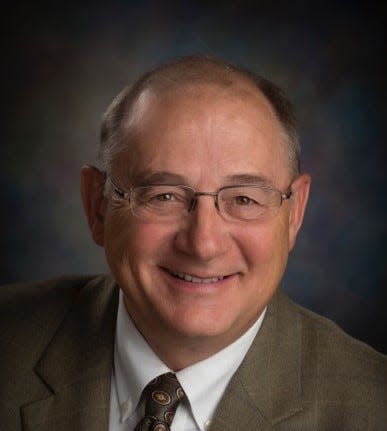Kansas physician urges support for Alternatives to PAIN Act to help end opioid addiction

Over the past 20 years, our nation’s struggle with opioid addiction has evolved into the far-reaching and disturbing crisis that we now find ourselves in today.
As a Kansas family physician, I sit across from many patients in the exam room, good and hardworking people, who have become unwitting soldiers in a battle against addiction. Nationwide, the figures are grim — about 9.3 million Americans have fallen into the grip of prescription opioid misuse each year.
The narrative is all too familiar, and I’ve heard it time and again through my experience as a physician and my work as vice chair of the Kansas House Health and Human Services Committee. A patient comes in, reeling from the pain of a shattered limb or an invasive surgery, and they leave with a prescription meant to ease their suffering.
But too often, that prescription becomes a pandora’s box, leading to addiction and in cases all too common, death.
The specter of opioid dependency is a menacing reality, an unwanted companion in the journey toward healing. But today, we stand at the cusp of a transformative moment. Years of extensive research and trials have borne promising developments.
The FDA is on the verge of approving a non-addictive, non-opioid medication(s) for acute pain management. This could be a defining moment in our struggle against the opioid crisis, providing patients a chance to heal without the fear of addiction.
But for this promising breakthrough to assist all who need it, it requires legislative support and public awareness. At the federal level, the Alternatives to Prevent Addiction in the Nation Act (Alternatives to PAIN Act) represents a bipartisan commitment to make non-opioid pain treatments accessible and affordable for the 65 million seniors who depend on Medicare, the federally run health care program.
While lawmakers in D.C. take proactive steps to make non-opioids more accessible, we serving in the Kansas Legislature should do the same. Our local communities look to us in Topeka to take decisive action. Education is the first step. Without awareness of these non-opioid alternatives, patients will continue to walk the perilous tightrope of addiction.
The introduction of Kansas House Bill 2670 in February was a much-needed initial step. This bill seeks to charge the Kansas Department of Health and Environment with the critical task of creating and distributing educational resources about non-opioid pain management options to both providers and patients alike.
However, education alone is not enough. We must also explore every possible avenue to ensure that these forthcoming non-addictive treatments are not just known, but readily accessible and affordable to every Kansan in need.
The opioid crisis is a complex and deep-rooted issue that has woven itself into the fabric of our communities. Unraveling it will not happen overnight. It demands a clear, unwavering understanding that to overcome such a pervasive challenge, we need a comprehensive, all-hands-on-deck approach.
We must employ every strategy, embrace every innovation, and unite every resource to turn the tide.
I stand with my fellow Kansans, my fellow physicians, and my fellow legislators in urging swift action. We must rally behind the Alternatives to PAIN Act and HB 2670 with a sense of urgency and collective responsibility. Providing education through HB 2670 is just the beginning of the fight against addiction.
Let us work together to ensure that these newer, safer medicines are not just a promise on the horizon but a reality in the hands of those who need them most. The health and future of our communities, our state, and indeed, our nation hinge on the actions we take today. Let us not delay another moment.
John Eplee is a state representative for Kansas’ 63rd District. He lives in Atchison, where he has practiced family medicine for 42 years.
This article originally appeared on Topeka Capital-Journal: Kansas physician backs Alternatives to PAIN Act to end opioid addiction
